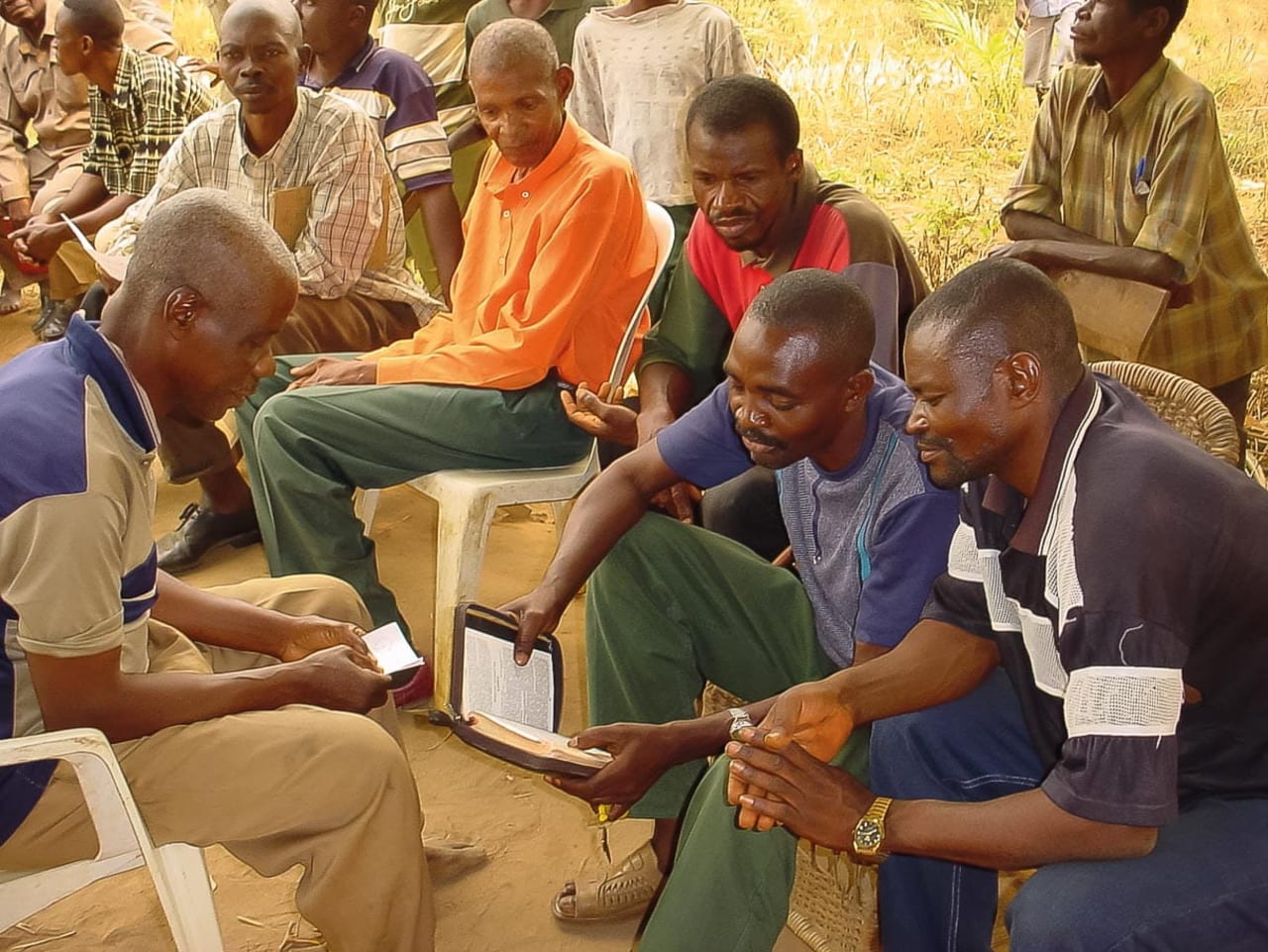Community Health Evangelism (CHE) is a community health and development programme used by hundreds of churches and organisations across the world. CHE equips communities to identify the problems they are facing and mobilise their own resources to achieve positive, sustainable change.
Each village taking part in a CHE programme elects a development committee to oversee the process. The community decides which issue to focus on first – for example, clean water. They select people to be trained as CHE volunteers.
CHE staff train the volunteers to be community health workers. These volunteers visit homes in the village and show them how to tackle the problems identified by the community. For example, they may teach families about the importance of clean water and show them ways to make their water safe to drink.
The CHE team also teaches the volunteers how to share their Christian faith appropriately and disciple new believers. The idea that our beliefs affect whether or not we have healthy practices is central to CHE’s work.
How our beliefs can influence our health
Terry Dalrymple, Coordinator of the Global CHE Network service team, says:
‘Helping people change their behaviours very often means offering them the opportunity to change their beliefs.
‘Some worldviews can lock people into their poverty in certain ways. For example, many people around the world are animistic – they believe the world is controlled by spirits. So their work becomes appeasing the spirits.
‘In Thailand, one community stopped water pipes being laid because they said it would anger the spirits. In Papua New Guinea, for 30 years many people would not use latrines, because they believed that evil spirits lived inside small, dark spaces like latrine structures.
‘But the Bible tells us that God is in control of the world, not evil spirits. We are made in the image of God and are stewards of his resources. God made trees and fruit and vegetables, but he did not create restaurants or fruit salads. He placed people in his creation to do what he does – to create and develop. I believe the gospel frees people to be what God intended them to be.’
The Global CHE Network is currently working in 125 countries around the world. Their staff run training courses for those wishing to get involved. They welcome enquiries, and can link Footsteps readers to CHE work taking place in their own countries.
Website: www.chenetwork.org
Visit www.chenetwork.org/store.php to download training manuals and lesson plans about health care. Some materials are available in languages other than English.
Case study: Health and hope in Haiti
By a woman from Novion, Haiti
‘I have been involved with Community Health Evangelism (CHE) for the past nine years. A friend was a CHE worker and invited me to perinatal classes [classes before and after the birth of a baby]. Now my baby is two-and-a-half years old and doing well.
My CHE-worker friend showed me many picture booklets. The one on hookworm explained why we should not walk barefoot, since the worms come through the soles of the feet. When I showed my friends the picture booklets, they saw their need to change, too.
I have learnt how to treat my drinking water and wash my hands to prevent diarrhoea. And I have learnt about using oral rehydration solution to keep my children from dying from dehydration when they do get sick.
I have changed in other important ways as well. Before I learnt about CHE, I thought my life was not worth much. However, now I have learnt that God loved me enough to send his son, Jesus, to die for me. Now I serve Jesus by working as a CHE volunteer.’








